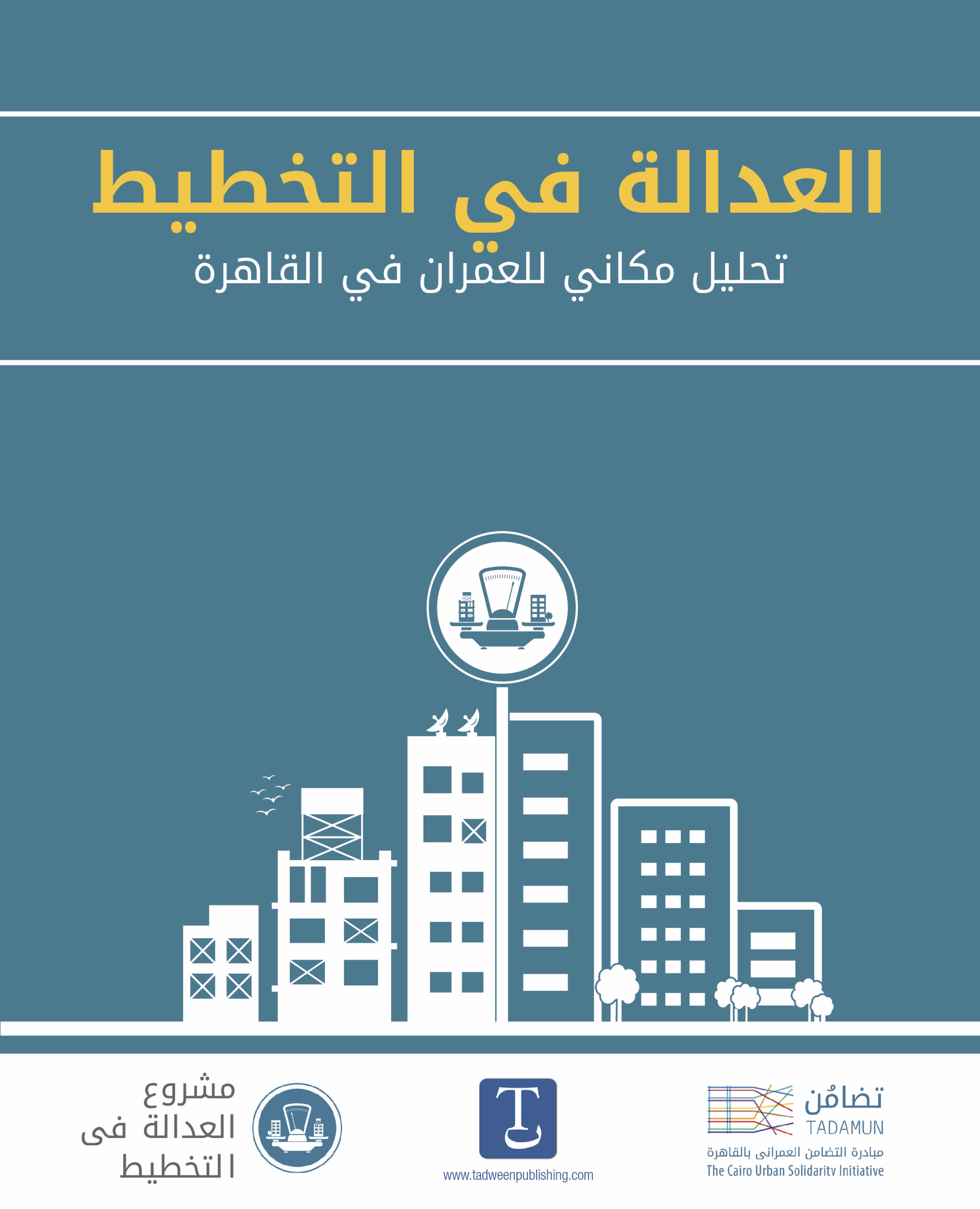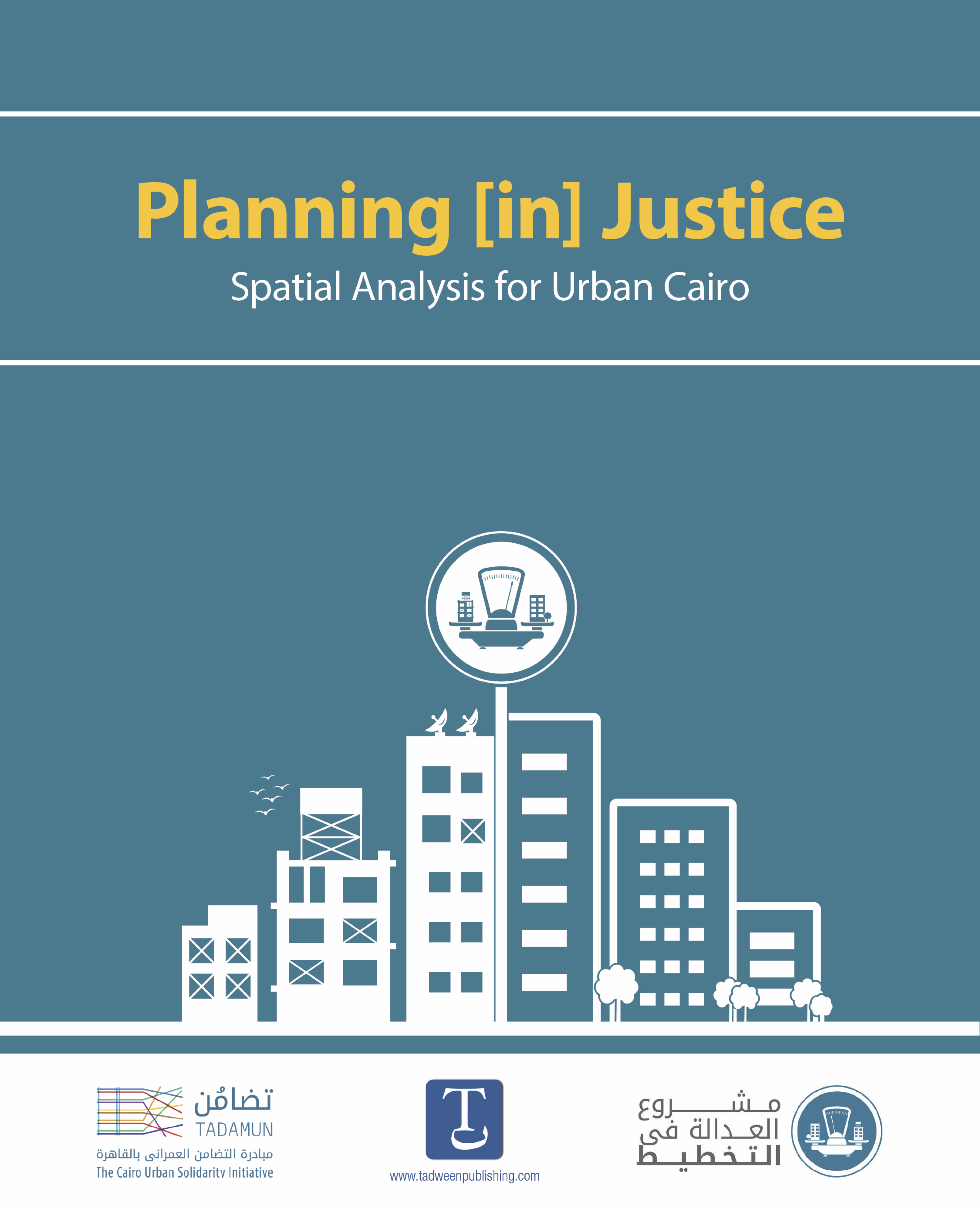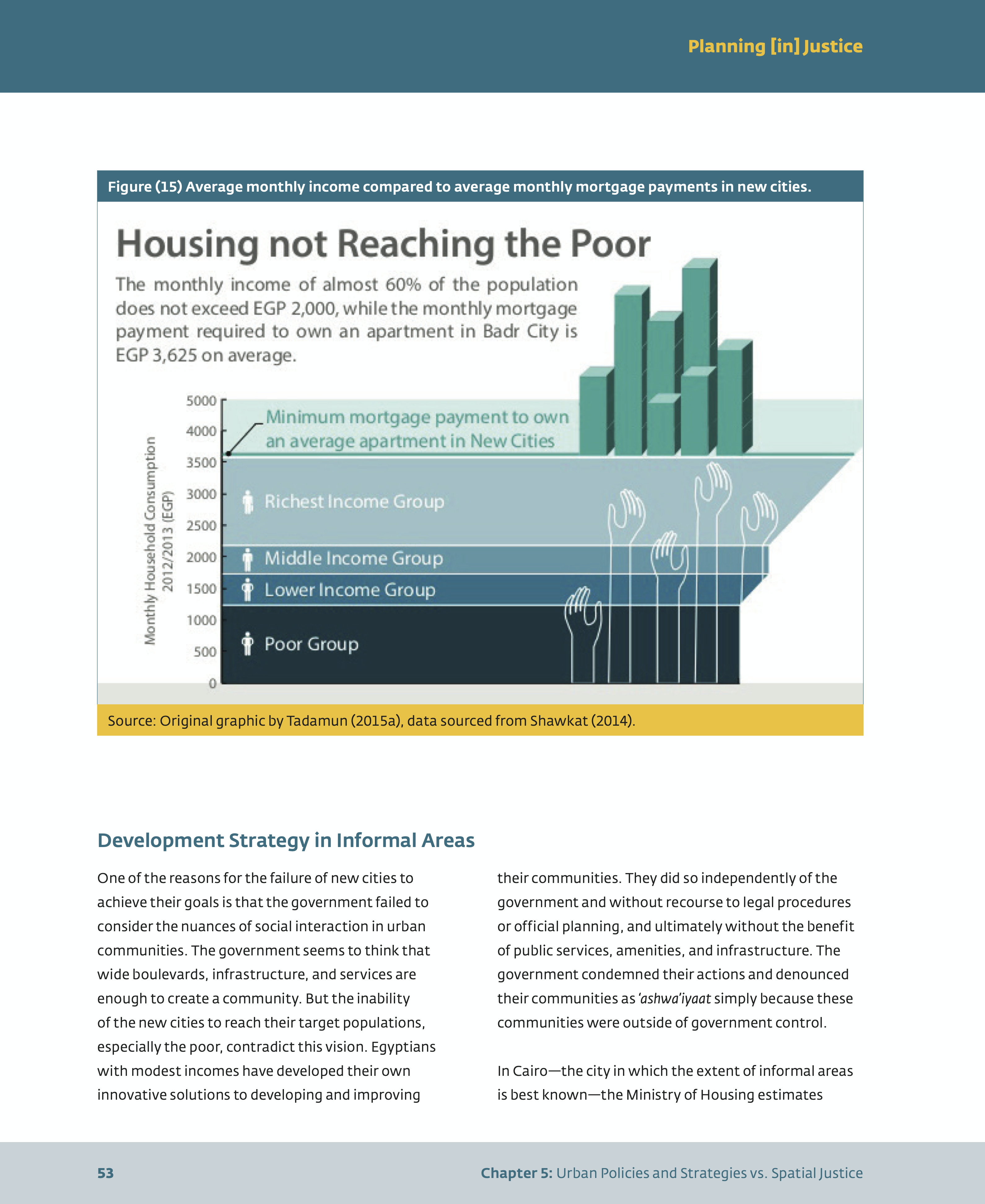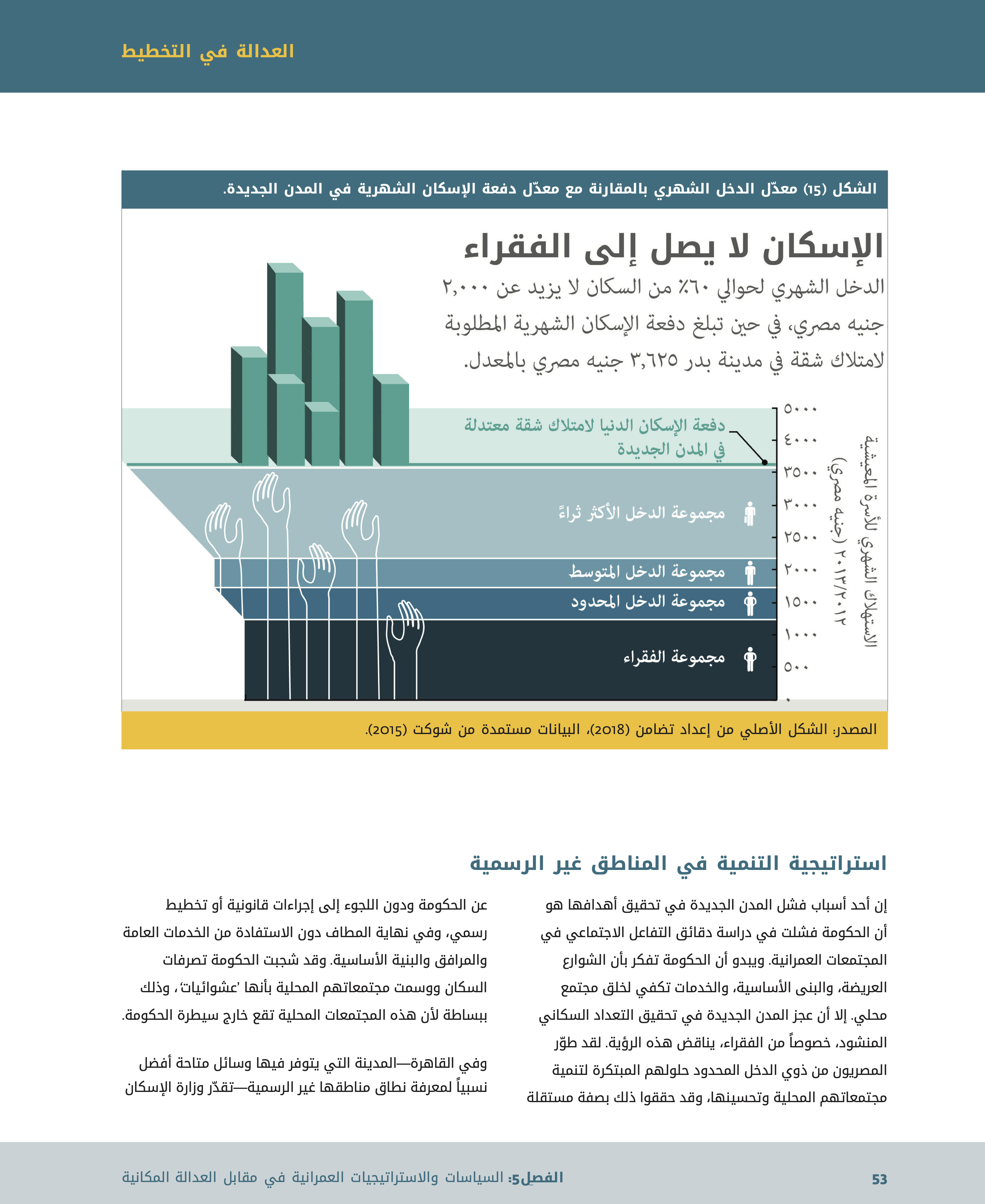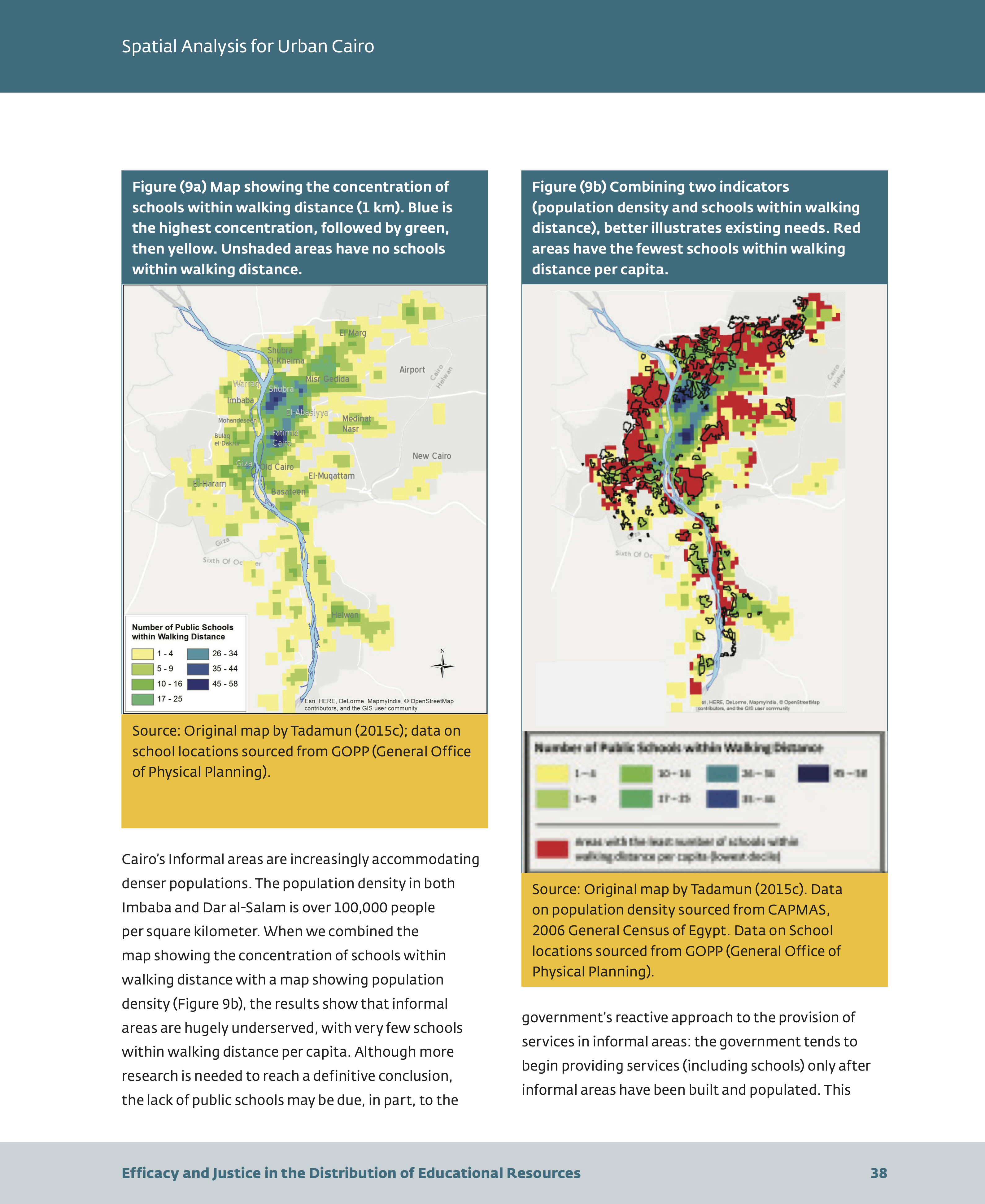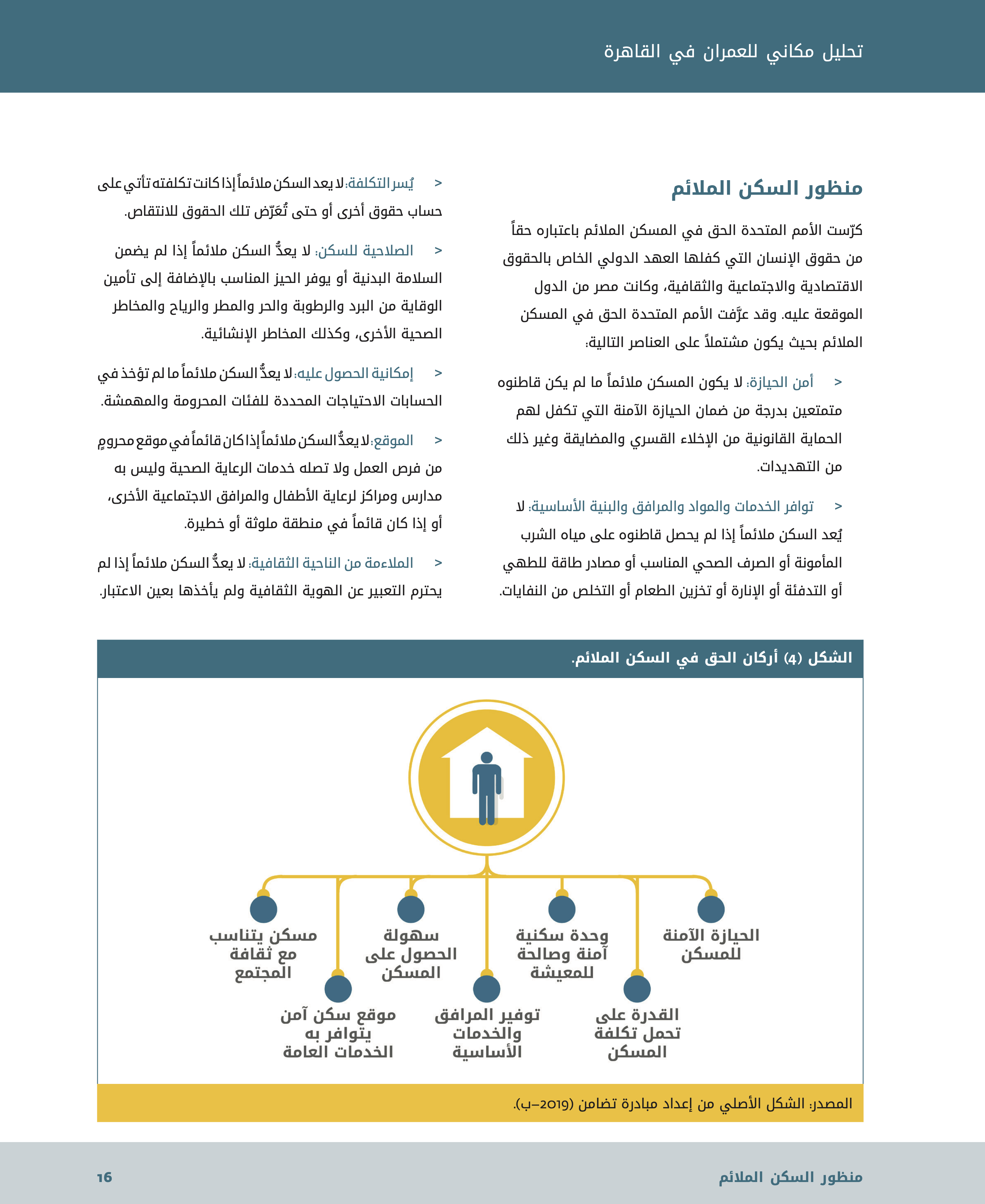Produced by Tadamun: The Cairo Urban Solidarity Initiative, Planning [in] Justice is now available as a single, bilingual report in English and Arabic at Tadween Publishing.
Tadamun launched the Planning [in] Justice project to study and raise awareness about spatial inequality in the distribution of public resources among various urban areas, and to highlight the institutional causes that reinforce the current conditions in Egypt, especially in the GCR. The Planning [in] Justice project compiled publicly-available data, and data available by request, and utilized Geographic Information Systems (GIS) software to map a variety of indicators—poverty and education levels, access to healthcare facilities, public schools, population density, among other variables—at the neighborhood level. Whereas previous studies on similar poverty and development measures in the CGR have largely been limited to the district level, Planning [in] Justice captures variations in these indicators at the shiyakha—or neighborhood—level. The project also aims to explore the possibilities for developing urban areas, to analyze the cost and return on public investment in underserved urban areas, and to compare this return with investment in new cities and affluent neighborhoods. We have previously published specific articles and briefs about spatial inequality, but in this document we present a more comprehensive analysis of the topic, drawing from our previous more specific publications. It is our hope that the Planning [in] Justice project will provide decision-makers and the general public with a necessary tool to advocate for, develop, and implement more effective and targeted urban policies and programs.
About TADAMUN: The Cairo Urban Solidarity Initiative
The TADAMUN Initiative believes that all citizens have an equal right to their city, as well as a shared responsibility towards it. TADAMUN also believes that solidarity among citizens is the only way to achieve social justice and a decent standard of living, particularly for many who have been ignored for too long. TADAMUN strives to work with all stakeholders as it builds alliances and coalitions to encourage change and introduces realistic alternatives and solutions for existing urban problems. What we need is not more undemocratic and elitist decisions, but for all citizens to claim and demand their urban rights and to devise new urban policies that are more effective, equitable, participatory, and sustainable.
For more on TADAMUN, please visit their website at http://www.tadamun.co/
***
أطلقت مبادرة تضامن مشروع العدالة في التخطيط لدراسة غياب العدالة المكانية من حيث توزيع الموارد العامة بين المناطق العمرانية المخطلفة وللتوعية بهذا الشأن، ولتسليط الضوء على الأسباب المؤسسية التي تكرّس الظروف الحالية في مصر، خصوص خصوصاً في إقليم القاهرة الكبرى. وعمل مشروع العدالة في التخطيط على تجميع بيانات متوفرة للعموم، وبيانات متوفرة عند طلبها، واسخدم المشروع برنامجاً حاسوبياً لنُظم المعلومات الجغرافية لوضع خرائط لمؤشرات متنوع — مستويات الفقر والتعليم، وإمكانية الوصول إلى مرافق الرعاية الصحية، والمدارس الحكومية، والكثافة السكانية، ومتغيرات أخرى — على مستوى الشياخة (وهي أصغر التقسيمات المحلية في النظام الأداري المصري). وفي حين ظلت الدراسات السابقة التي تناولت مقاييس شبيهة للفقر والتنمية في إقليم القاهرة الكبرى محصورة غالباً على مستوع الحي، يتناول مشروع العدالة في التخطيط هذه المؤشرات على مستوع الشياخة (أو المجاورة السكنية). ويهدف المشروع أيضاً إلى تحري إمكانيات تطوير المناطق العمرانية، وتحليل كلفة الاستثمار في المناطق العمرانية غير المخدومة بما يكفي وعوائد هذا الاستثمار، ومقارنة هذه العوائد مع عوائد الاسثمار في المدن الجديدة والأحياء الغنية. وقد نشرنا سابقاً مقالات وإيجازات محددة حول غياب العدالة المكانية، ولكننا نعرض في هذه الوثقية تحليلاً أكثر شمولاَ حول الموضوع، ونستند إلى إصداراتنا السابقة الأكر تحديداً. ونحن نأمل بأن يزود مشروع العدالة في التخطيط صانعي القرارات وعموم الجمهور بالوسائل الضرورية لمناصرة وتطوير وتنفيذ سياسات وبرامج عمرانية أكثر فاعلية.
عن تضامن: مبادرة التضامن العمراني في القاهرة
تؤمن مبادرة تضامن أن لجمية المواطنين حقاً متساوياً في مدينتهم، كذلك مسئولية مشتركة تجاهها، وأث تكاتفهم جميعاً هو السبيل الوحيد لتحقيق العدالة الاجتماعية والحياة الكريمة لسكانها وخاصة الذين طالما تعرضوا للتهميش. وتسعى مبادرة تضامن للعمل مع جميع الأطراف من خلال بناء الشراكات والتحالفات من أجل التغيير، وتقديم بدائل وحلول واقعية لمشاكل عمراننا القائم. فما نحتاجه ليس مزيداً من القرارات التي يتخذها المسئوولون بأساليب تفتقد الحوار والمشاركة، ولكن نحتاج لأن يطالب كل المواطنين بحقوقهم العمرانية وأن يصيغوا معاً سياسات عمرانية جديدة أكثر كفاءة وعدالة واستدامة تضمن إشراكهم بصورة مباشرة في إدارة مدينتهم واتخاذ القرارات المتعلقة به.

